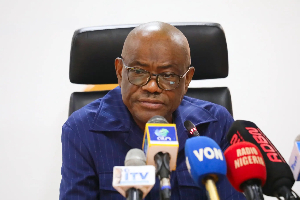The National Association of Nigerian Travel Agencies (NANTA) has strongly condemned the ongoing practice by three international airlines of selling flight tickets solely in U.S. dollars within Nigeria.
The association described this as not only harmful to the Nigerian naira but also as an affront to the country’s economic sovereignty.
Yinka Folami, President of NANTA, voiced the association’s concerns in a statement to The PUNCH, criticising the airlines for refusing to reinstate the naira as a payment option despite notable improvements in Nigeria’s foreign exchange system.
Folami labelled the stance as dismissive and disrespectful, suggesting that these carriers were deliberately excluding the local currency from transactions within its own borders.
He noted that while most of the aviation industry has adapted and now accepts the naira, a small number of airlines have resisted the change.
Folami said: “It is no longer a general industry problem. Only about three airlines are still selling exclusively in dollars. We are not allowed to name these airlines due to professional ethics and anti-competition regulations. They are punishing the naira, excluding it from trade within its own country.”
Folami made it clear that his concerns were both professional and patriotic, viewing the dollar-only policy as an unnecessary challenge to Nigeria’s autonomy and economic stability.
His remarks come at a time when the naira has shown signs of recovery following several financial reforms. He argued that the ongoing refusal to transact in local currency directly undermines national efforts aimed at stabilising the economy.
He stated that liquidity has improved, transparency has increased, and most airlines are now able to repatriate their earnings without complications.
He, however, questioned why out of over 30 carriers, these three airlines are choosing to act differently.
Folami also praised the Central Bank of Nigeria and other authorities for enhancing transparency in the forex market, urging all players in the aviation industry to support the government’s broader economic recovery plans.
The concerns raised by NANTA and other aviation experts reflect a deepening unease within Nigeria’s travel sector. The refusal by some airlines to accept the naira is seen not just as a business issue, but as one that could hinder the country's financial and economic progress.
As the government continues its efforts to reinforce the currency and attract foreign investment, stakeholders argue that compliance with local laws and respect for the naira should be non-negotiable for all airlines operating in Nigeria.
With the majority of international carriers now transacting in naira, focus is intensifying on the few that are yet to follow suit, raising questions about their motives and their commitment to Nigeria’s financial stability.
Business News of Wednesday, 1 October 2025
Source: www.legit.ng













